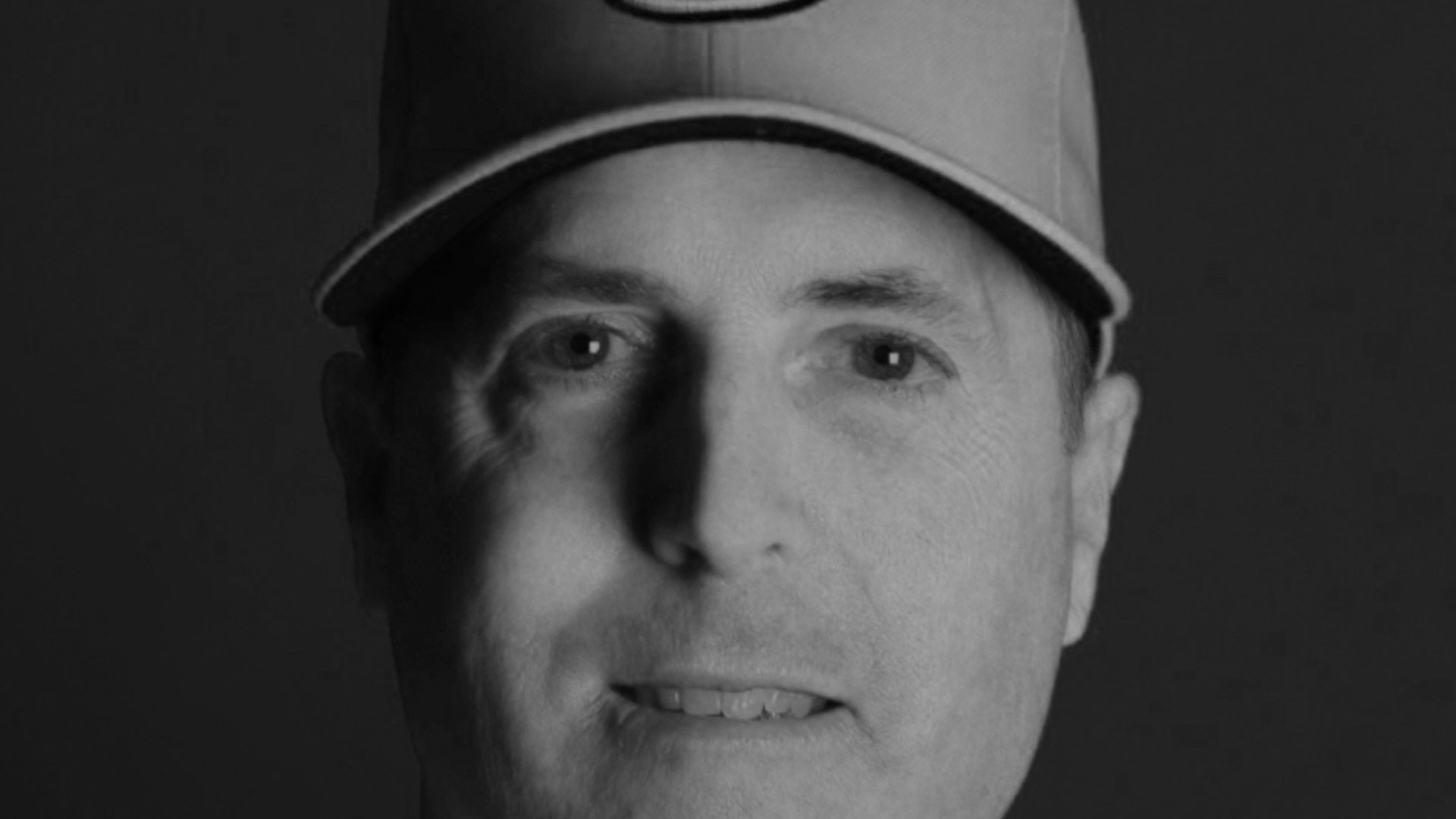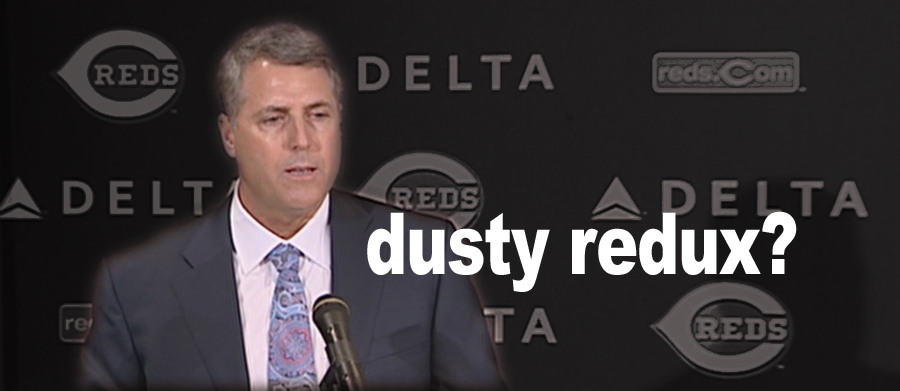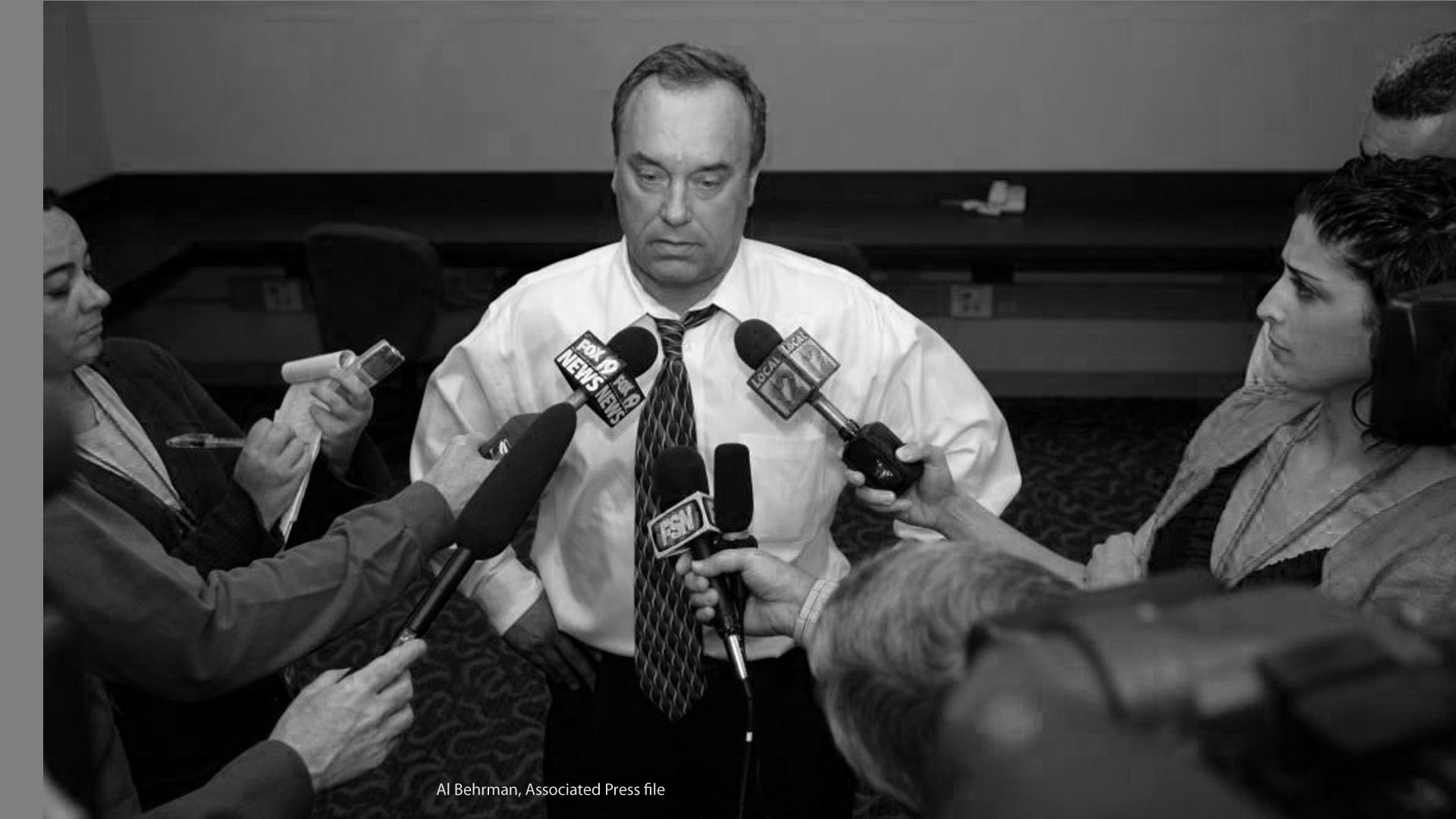Dead Man(ager) Walking?
“As I always say, a command is a lonely job. It isn’t easy to make decisions. Sometimes the captain of a ship needs help. And by help, I mean constructive loyalty. What I’m trying to say is, uh, a ship is like a family. We all have our ideas of right and wrong but we have to pitch in for the good of the family. If there was only some way we could help each other.”
If only. When Bryan Price took the stage and gave a star turn as a more vulgar version of Captain Philip Francis Queeg at the expense of beat writer C. Trent Rosecrans, he showed his hand.
Two consecutive weekends of being treated as the red-headed stepchild of the St. Louis Cardinals had gotten into the heads of the Cincinnati Reds in stunning fashion, not just in the win/loss ledger, but on the management side as well. And Bryan Price was beginning to sound like the fictional Navy Captain of the U.S.S. Caine on the verge of a breakdown.
“I like to talk — and I have spoken as candidly as I can with you people, if that’s not good enough, I won’t say a f******thing. I’ll go, ‘yes sir, no sir.’ And I can do that. But f***, I’ve been as candid as I can f****** be about this team and our players, and we’ve got to deal with this s***, every f****** team that we f****** play has to know every f****** guy that’s here and what they can and can’t do? F*** me. It’s a f****** disgrace. I’m f****** sick of this s***. It’s f****** hard enough to f****** win here to have f****** every f****** opponent know exactly what the f*** we bring to the table every day. It’s f****** horse****. I don’t like it.”
People can speculate about the remarkable lack of awareness of a manager regarding the role of beat writers and the press in general. But Price knows. Don’t kid yourself. He knows. He just needed to release the Kraken.
It wasn’t supposed to go like this.
When it became clear in October 2013 that a fatherly touch was not enough to steer the Reds into clear sailing ahead, Bryan Price was the obvious choice to finish the job Dusty Baker had begun.
Having been interviewed for the Marlins head job a year before Baker was let go, Bryan Robert Price was a growing favorite on the managerial candidate carousel. The Mariners — where he had once worked as pitching coach — were reportedly infatuated with him. Everywhere he’d worked the reports were glowing. He was loyal — he’d resigned as pitching coach from the Diamondbacks after they’d fired manager Bob Melvin. At 51, he was young — in contrast to the 64 year old Baker who had scared the Reds by falling victim to a mini stroke a year earlier. He is by all accounts a smart, no-nonsense guy according to everyone who has worked with him. Oakland A’s manager Bob Melvin was unequivocal:
“Based on what he did with his pitching staffs, everybody was accountable,” Melvin said. “Everybody knew Bryan was very communicative and knew the mechanics and mental part, and the mental part can transition to the position-player end. He was more than a pitching coach for me. He was a sounding board, too. He didn’t just watch the pitching end, he understood the game.”
From a fan standpoint, perhaps the most remarkable comments came from former player Bronson Arroyo:
“He’s as organized a s anyone in the game, he holds people as accountable as well as anyone I’ve seen. He doesn’t buy into stereotypical things in the game, things that other people buy into that I don’t feel are relevant. Price looks at evidence. He’s a freaking smart guy, he makes his decision on reasonable evidence. Sometimes in baseball we go by hunches, what someone else said or the way things have gone in the past. He doesn’t do that.”
So, Bryan Price became the embodiment of hope. Hope that the fixations on bunting, sacrifice hits and clogging the bases were a thing of the past. Hope that the philosophy of vets over youth was dead and buried. Hope that leadership meant more than wristbands and pats on the fanny.
“Ah, f***. I’m just, I’m f****** p****** up a rope in this f****** business. Because everyone has to know everything all the f****** time. That’s not my f****** obligation, it’s not their obligation. You know why f****** Billy Hamilton didn’t f****** play? The other day? Because his f****** finger’s hurt and he couldn’t hit right-handed comfortably. Right? So that’s something that I need to know and no one else needs to know. No one else needs to f****** know it, and all of a sudden it’s out there. His f****** fingers are sore. It doesn’t benefit us. It wasn’t from you, but it doesn’t benefit us one bit to f****** announce to the f****** other teams that we’re playing to bring in lefties when they need to f****** get Billy out. There’s no benefit.”
Injuries made a wreck of Bryan Price’s first season. As if that wasn’t enough, the Milwaukee Brewers got out of the gate surprisingly fast, leaving the Reds feeling as if the Central Division was off its leash and running away from them. It was even understandable when Price decided to push the running game, allowing third base coach Steve Smith to wave base-runners home with the look of a Walmart greeter welcoming eager shoppers. After all, the Reds’ best players were nowhere to be found and runs had to found some way, somehow.
And if one was being honest, it was also no surprise when Price reneged on a promise to use closer Aroldis Chapman more liberally and continued the previous regime’s practice of holding his best reliever in reserve for the 9th inning, like a fine wine he was loathe to uncork too soon. When things unravel, who among us doesn’t retreat to a safe place and regroup. In Baseball, there’s no safer place than “the Book.”
“Anyone who knows me will tell you I’m a book man. I believe everything in it was put in for a purpose. When in doubt, remember on board this ship, we do things by the book. Deviate from the book and you’d better have a half a dozen good reasons. And you’ll still get an argument from me. And I don’t lose arguments on board my ship. –Captain Queeg”
This year was supposed to be Bryan Price’s second chance. An opportunity to regroup and show everyone in Redleg Nation the progressive, thoughtful skipper he was billed as when he was introduced to the media in the fall of 2013.
But on Opening Day, as the rain poured down on a packed house at Great American Ball Park, Price once again went with predetermined pitching roles, sending journeyman Kevin Gregg to the wolves in the 8th inning, leaving the most dominant reliever in a generation standing behind the bullpen fence, spitting sunflower seeds and watching Gregg struggle before giving away a slim 2-run lead.
Twelve days later, a similar scenario would play out, when Price left Homer Bailey — fresh off forearm surgery last year — in the game too long. He hadn’t recorded a single strikeout on the day, a rare occurrence for the power pitcher. The Reds were desperate for a “stop-the-bleeding” win against the hated-Cardinals. Some suggested Price was quietly voicing a “no confidence” vote on his beleaguered bullpen. That wasn’t it. Instead, it was more of the same; more sticking with a player who deserved the right to stay in the game; more acquiescing to the perceived needs of the player at the expense of the needs of the team.
You sometimes wonder if the NFL doesn’t have it right when it comes to their leaders. Watching Tom Landry patrol the sidelines in his suits and porkpie fedora 45 years ago, the separation between coach and player couldn’t be more apparent. In Baseball, the standard uniformed attire of managers would look comical were it not for the tradition of the game, which often blinds us to what would otherwise be the buffoonery of an overweight, 60-something man dressed out like he might at any moment hit the field and begin chasing down line drives.
One wonders if this blurring of the gray area between player and coach doesn’t work against the best interest of an organization. Dusty Baker almost assuredly saw himself as one of the boys. That led to an unfortunate decision to not just allow Reds’ second baseman Brandon Phillips say some unspeakable things to C. Trent Rosecrans in his office in the summer of 2013, but to give his tacit approval. When Bryan Price chose to use Rosecrans as his public whipping boy to exorcise his Cardinal-induced demons, he was doing exactly the same thing.
“So, I’m f******, to be honest with you, I’m f****** sick of this s***. I’m sick of listening to this f****** s***, I’m sick of f****** the f****** second-guessing b*******, you guys can do whatever the f*** you want, but I’ll tell you this — I’m not going to f****** tell you everything about this f****** club, because you f****** guys are going to out there and sniff it out anyway. I don’t f****** like it one f****** bit. I bend over backwards to be honest and direct with you f****** guys and you stick it right up my f****** a** — and the f****** team’s a**. And I’m sick of it.”
Will Bryan Price lose his job over this? That seems a reach. It’s hard to see his players doing anything other than rallying around their manager. They will hunker down in their bunker and do what all athletes do: keep the media and the fans at arms-length. Shut up and support the team. It’s a tribal thing. You wouldn’t understand.
Nevertheless, there was panic in Price’s rant. The people in charge will have to begin wondering if too many of Price’s decisions are irrational ones made in the heat of the moment, not in the cool light of the day.
Meanwhile, owner Bob Castellini will sit in his office and ponder the ramifications of all this — if any. As the Britt McHenry episode has taught us, one unfortunate moment, broadcast to the world, shouldn’t be an indictment of a person’s true character. By all acounts, Price is a good and decent man. But, Castellini is as much of a fan as he is an owner. He believes in representing the city of Cincinnati with pride, as he will tell you any time the discussion turns to the All Star Game or his role as overseer of Baseball’s first professional franchise. And as he sits there, he will have to ask himself the very same question Bryan Price asked Mr. Rosecrans:
How does this benefit the Reds?








No Comments